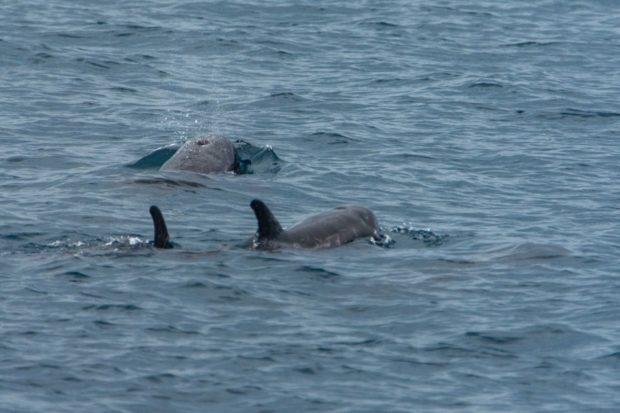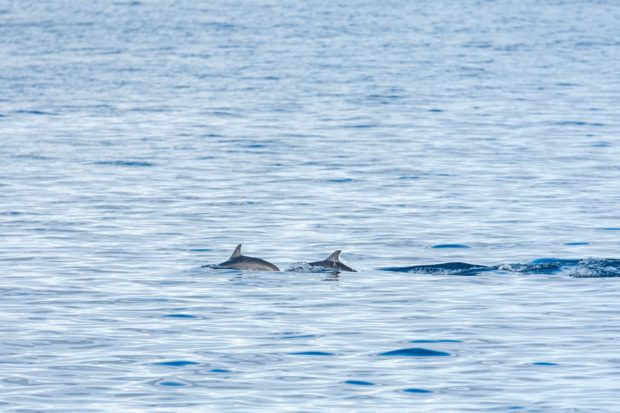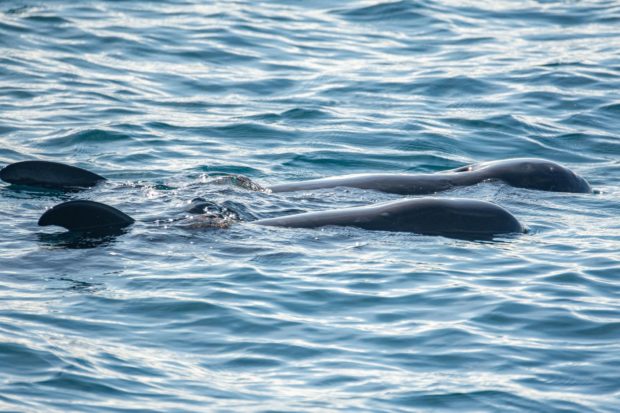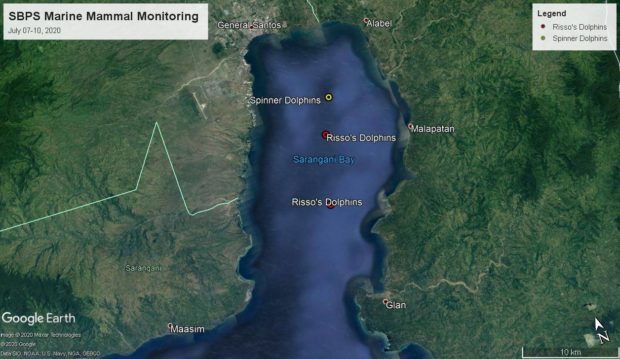Dolphin sightings prove Sarangani Bay is healthy –environment execs
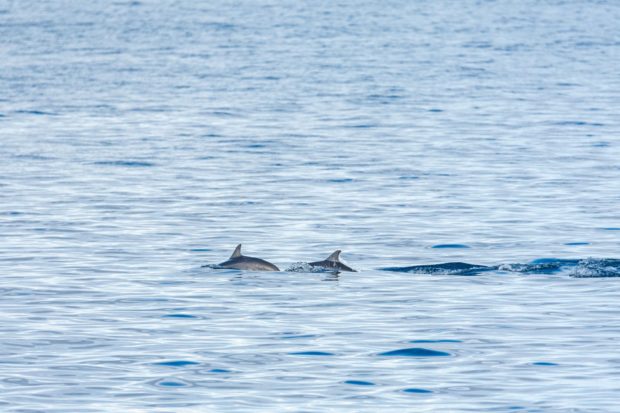
Photos courtesy of the Protected Area Management Office –Sarangani Bay Protected Seascape (PAMO-SBPS)
KORONADAL CITY——Environment officials and conservationists sighted about 30 dolphins of various species in Sarangani Bay between July 7 to 10 during regular monitoring of marine mammals in the area.
Joy C. Ologuin, protected area superintendent (PASu) of Sarangani Bay Protected Seascape, said the phenomenon is an indication that the bay has become a haven of large marine mammals.
According to Oloquin, the monitoring team spotted 16 Risso’s dolphins (Grampus griseus), also known as Monk dolphins, and around 10 to 15 spinner dolphins (Stenella longirostris), which are smaller and are known for their acrobatic stunts.
The monitoring team is composed of personnel from the Department of Environment and Natural Resources (DENR), Bureau of Fisheries and Aquatic Resources, Sarangani provincial government, and Sarangani Environmental Conservation and Protection Center.
Ologuin explained that food hunting is one of the reasons why the dolphins are in the bay.
“There are lots of juvenile species of fish in the Sarangani Bay which serve as the food of these marine mammals,” Ologuin said.
She added that the dolphin sightings show that Sarangani Bay is healthy, safe and a food harbor for large marine mammals.
Declared a protected area in 1996, the 215,950-hectare bay straddles the towns of Glan, Malapatan, Alabel and Maasim in Sarangani province, and General Santos City.
With strict implementation of marine conservation laws, authorities have maintained the bay’s bounty even as its pristine waters draw tourists for swimming and water sports activities.
From August to September last year, the same monitoring team sighted dwarf or pygmy sperm whales in the waters of Malapatan, between 40 to 60 spinner dolphins off Glan and Malapatan, between 150 to 200 Fraser’s dolphins off General Santos City and Glan, four pygmy killer whales off Malapatan, and six Risso’s dolphins off Glan.
Lawyer Felix S. Alicer, DENR-12 regional executive director, lauded the different stakeholders for maintaining the health of the bay and for continuing to preserve its marine riches.